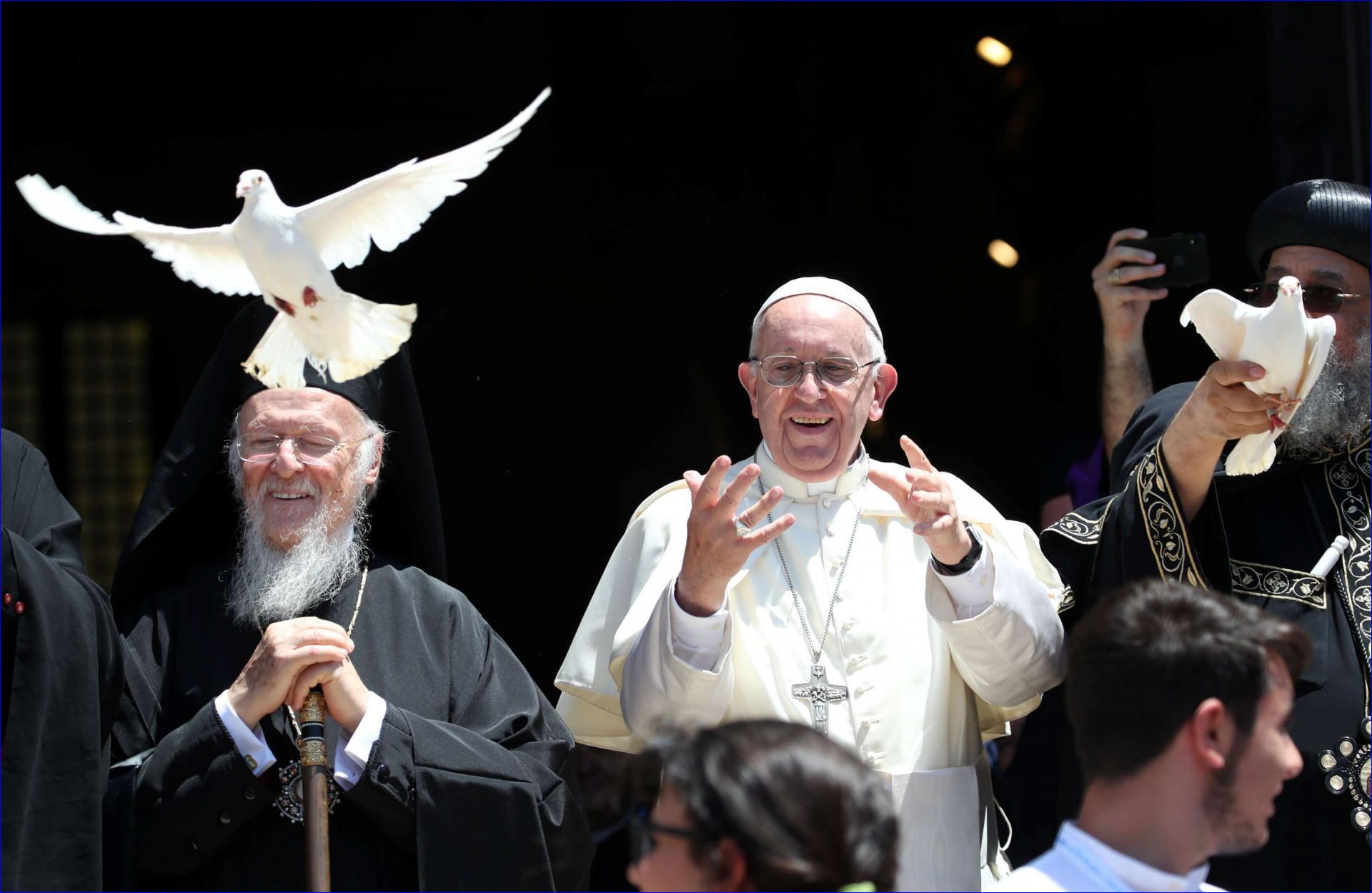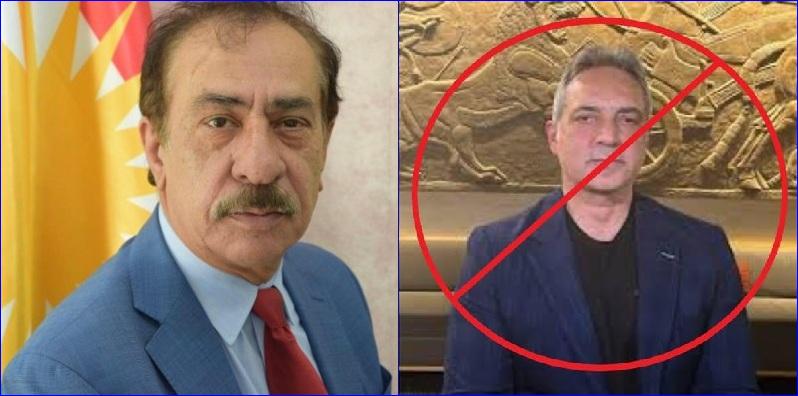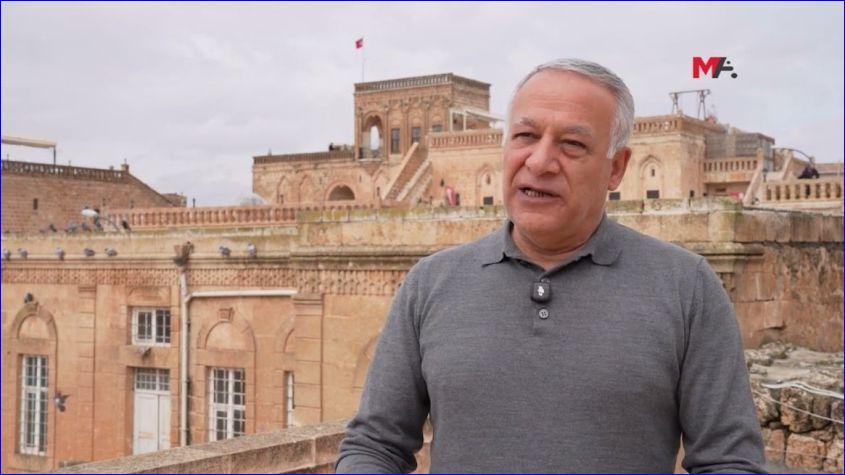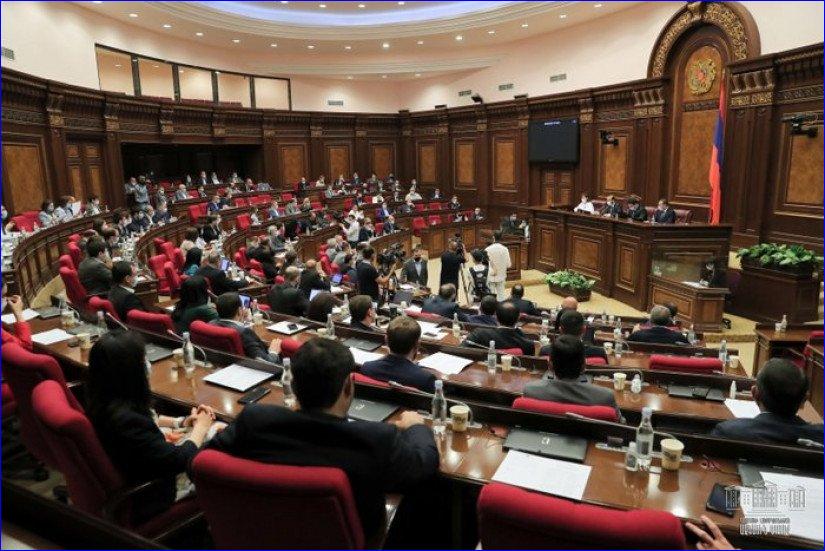 Christians have been rooted in the Middle East as minority communities since the birth of the religion, but their numbers are dwindling amid conflict and jihadist attacks. Today they make up only four percent of the region's population, down from 20 percent before the First World War, Cardinal Kurt Koch, president of the Pontifical Council for Promoting Christian Unity, said this month.
Christians have been rooted in the Middle East as minority communities since the birth of the religion, but their numbers are dwindling amid conflict and jihadist attacks. Today they make up only four percent of the region's population, down from 20 percent before the First World War, Cardinal Kurt Koch, president of the Pontifical Council for Promoting Christian Unity, said this month.
By Evelyn Karatzas
 Melbourne -- The Greek-Australian author and historian Dr. Themistocles Kritikakos has discussed the release of his latest book with The National Herald, which explores the long-term effects of the Armenian, Greek and Assyrian Genocide and its recognition in 21st century Australia. Dr. Kritikakos is a writer and historian born and raised in Melbourne.
Melbourne -- The Greek-Australian author and historian Dr. Themistocles Kritikakos has discussed the release of his latest book with The National Herald, which explores the long-term effects of the Armenian, Greek and Assyrian Genocide and its recognition in 21st century Australia. Dr. Kritikakos is a writer and historian born and raised in Melbourne.
 Ankara -- An Assyrian delegation from Sweden, headed by Assyrian Member of Swedish Parliament Yusuf Aydin, conducted a series of official meetings in the Turkish capital on 24 February to follow up on issues related to the rights of the Assyrian people, particularly property rights and the preservation of cultural heritage.
Ankara -- An Assyrian delegation from Sweden, headed by Assyrian Member of Swedish Parliament Yusuf Aydin, conducted a series of official meetings in the Turkish capital on 24 February to follow up on issues related to the rights of the Assyrian people, particularly property rights and the preservation of cultural heritage.
By Ashur Shirsha
 (AINA) -- A recent threatening and defamatory social media post made by the Washinton DC representative of the Kurdistan Regional Government (KRG), Mr Dasko Shirwani, against a prominent Assyrian community leader, Mr.
(AINA) -- A recent threatening and defamatory social media post made by the Washinton DC representative of the Kurdistan Regional Government (KRG), Mr Dasko Shirwani, against a prominent Assyrian community leader, Mr.
 Merde, Turkey -- In the stone courtyards of Tur Abdin, in Turkey's southeast, the Assyrian language now survives in just one officially recognized preschool. Community leaders warn that without urgent action, that fragile foothold may not be enough to secure its future.
Merde, Turkey -- In the stone courtyards of Tur Abdin, in Turkey's southeast, the Assyrian language now survives in just one officially recognized preschool. Community leaders warn that without urgent action, that fragile foothold may not be enough to secure its future.
 The four largest national minorities in Armenia, based on the 2022 census, have been identified for guaranteed representation in the National Assembly. According to the results of the 2022 census, the four largest national minorities in Armenia by permanent population are: Yezidis -- 31,079 Russians -- 14,076 Assyrians -- 2,755 Kurds -- 1,663 Under the Constitutional Law on the Electoral Code,...
The four largest national minorities in Armenia, based on the 2022 census, have been identified for guaranteed representation in the National Assembly. According to the results of the 2022 census, the four largest national minorities in Armenia by permanent population are: Yezidis -- 31,079 Russians -- 14,076 Assyrians -- 2,755 Kurds -- 1,663 Under the Constitutional Law on the Electoral Code,...
 Christians have been rooted in the Middle East as minority communities since the birth of the religion, but their numbers are dwindling amid conflict and jihadist attacks. Today they make up only four percent of the region's population, down from 20 percent before the First World War, Cardinal Kurt Koch, president of the Pontifical Council for Promoting Christian Unity, said this month.
Christians have been rooted in the Middle East as minority communities since the birth of the religion, but their numbers are dwindling amid conflict and jihadist attacks. Today they make up only four percent of the region's population, down from 20 percent before the First World War, Cardinal Kurt Koch, president of the Pontifical Council for Promoting Christian Unity, said this month.
 Melbourne -- The Greek-Australian author and historian Dr. Themistocles Kritikakos has discussed the release of his latest book with The National Herald, which explores the long-term effects of the Armenian, Greek and Assyrian Genocide and its recognition in 21st century Australia. Dr. Kritikakos is a writer and historian born and raised in Melbourne.
Melbourne -- The Greek-Australian author and historian Dr. Themistocles Kritikakos has discussed the release of his latest book with The National Herald, which explores the long-term effects of the Armenian, Greek and Assyrian Genocide and its recognition in 21st century Australia. Dr. Kritikakos is a writer and historian born and raised in Melbourne. Ankara -- An Assyrian delegation from Sweden, headed by Assyrian Member of Swedish Parliament Yusuf Aydin, conducted a series of official meetings in the Turkish capital on 24 February to follow up on issues related to the rights of the Assyrian people, particularly property rights and the preservation of cultural heritage.
Ankara -- An Assyrian delegation from Sweden, headed by Assyrian Member of Swedish Parliament Yusuf Aydin, conducted a series of official meetings in the Turkish capital on 24 February to follow up on issues related to the rights of the Assyrian people, particularly property rights and the preservation of cultural heritage. (AINA) -- A recent threatening and defamatory social media post made by the Washinton DC representative of the Kurdistan Regional Government (KRG), Mr Dasko Shirwani, against a prominent Assyrian community leader, Mr.
(AINA) -- A recent threatening and defamatory social media post made by the Washinton DC representative of the Kurdistan Regional Government (KRG), Mr Dasko Shirwani, against a prominent Assyrian community leader, Mr. Merde, Turkey -- In the stone courtyards of Tur Abdin, in Turkey's southeast, the Assyrian language now survives in just one officially recognized preschool. Community leaders warn that without urgent action, that fragile foothold may not be enough to secure its future.
Merde, Turkey -- In the stone courtyards of Tur Abdin, in Turkey's southeast, the Assyrian language now survives in just one officially recognized preschool. Community leaders warn that without urgent action, that fragile foothold may not be enough to secure its future. The four largest national minorities in Armenia, based on the 2022 census, have been identified for guaranteed representation in the National Assembly. According to the results of the 2022 census, the four largest national minorities in Armenia by permanent population are: Yezidis -- 31,079 Russians -- 14,076 Assyrians -- 2,755 Kurds -- 1,663 Under the Constitutional Law on the Electoral Code,...
The four largest national minorities in Armenia, based on the 2022 census, have been identified for guaranteed representation in the National Assembly. According to the results of the 2022 census, the four largest national minorities in Armenia by permanent population are: Yezidis -- 31,079 Russians -- 14,076 Assyrians -- 2,755 Kurds -- 1,663 Under the Constitutional Law on the Electoral Code,...